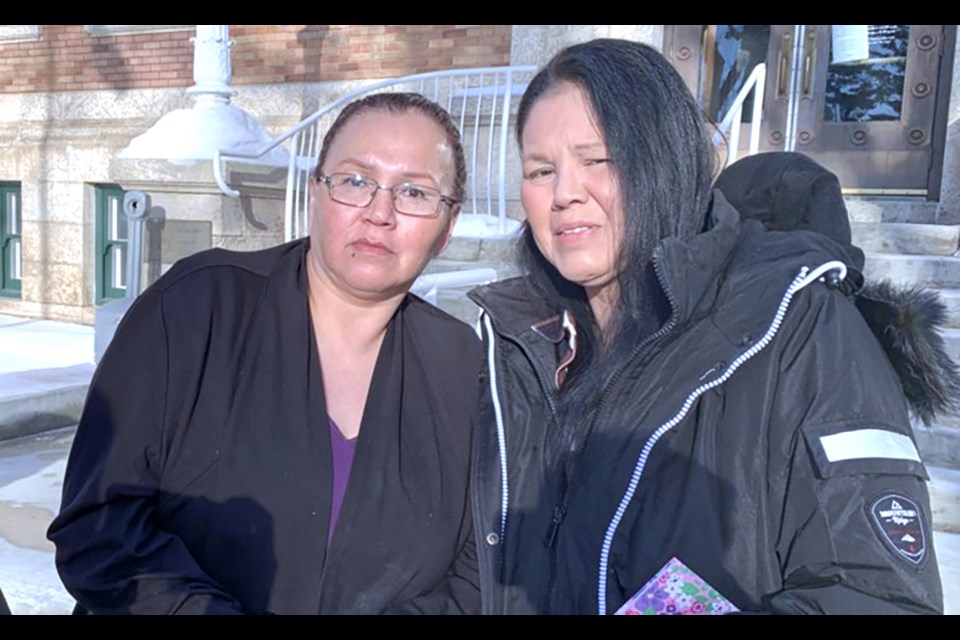TORONTO, Ont. - Innocence Canada, an organization dedicated to helping individuals who have been wrongfully convicted, has drawn parallels between the case of Odelia and Nerissa Quewezance and the wrongful conviction of David Milgaard.
The Quewezance sisters, from Keeseekoose First Nation, were convicted in 1994 of second-degree murder in the death of Kamsack-area farmer Anthony Joseph Dolff. However, they have always maintained their innocence. Milgaard was wrongfully convicted in 1970 for rape and murder. He spent 23 years behind bars. DNA evidence exonerated him years later.
“There are some similarities to the Milgaard case in that the Province refuses to accept that a miscarriage of justice has likely occurred,” Innocence Canada co-president Ron Dalton told SASKTODAY.ca Friday.
Dalton, however, added that cases like that of the Quewezance sisters should be viewed against the current societal review of Indigenous colonization, residential school, and cultural issues.
In 1994, Odelia and Nerissa Quewezance were sentenced to life in prison but a young offender – who admitted to committing the murder alone – was sentenced to four-years in prison.
“In my view the life sentences imposed on the sisters were disproportionate to any involvement they may have had in the original crime,” said Dalton. “Further the 10-year minimum period for parole eligibility has now exceeded 30 years, again a disproportionate period contributing to a miscarriage of justice.”
In January, Odelia and Nerissa Quewezance had a bail hearing at Yorkton Court of King's Bench, and the judge reserved his decision until March 27. The hearing was originally set for November 2022.
“I am cautiously optimistic but I never take such decisions for granted,” said Dalton.
“Should bail be denied to one or both sisters, Innocence Canada will continue to pursue the application now before the Federal Minister pursuant to section 696.1 of the Criminal Code,” added Dalton. “In fact, we are continuing to pursue a remedy from the convictions which is separate from the matter of bail.”
The Federation of Sovereign Indigenous Nations say Odelia and Nerissa Quewezance deserve to be exonerated and compensated, not granted bail.
Nerissa and Odelia have the support of high-profile advocates such as Senator Kim Pate, Innocence Canada, Kim Beaudin from Congress of Aboriginal Peoples, the late David Milgaard and retired judges Justices Harry LaForme and Juanita Westmoreland-Traore – who were appointed by Federal Justice Minister David Lametti in 2021 to head the creation of an independent Criminal Case Review Commission to review wrongful convictions. In February, following the two Justices' findings, Lametti created Bill C-40, which he named David and Joyce Milgaard’s Law.
In September 2021, Justices Harry LaForme and Juanita Westmoreland-Traore told SASKTODAY.ca that the conviction of Odelia and Nerissa Quewezance had signs of a miscarriage of justice and had called on the Parole Board of Canada to release them.
Lametti’s office is currently reviewing the 1994 convictions of Odelia and Nerissa Quewezance as a possible miscarriage of justice.
If Lametti finds that there was a miscarriage of justice, Saskatchewan may choose to retry the sisters in court on the second-degree murder charge.
“Should Minister Lametti send the case back to the Saskatchewan courts for retrial and the Province decides to proceed we are prepared to defend the sisters,” said Dalton.
Milgaard, who teamed up with the Congress of Aboriginal Peoples, was the first person to advocate for the sisters’ freedom. Even though Milgaard wanted to retire from his advocacy work, he continued to fight for them until his death in May 2022.
Dalton, who served eight-and-a-half years in prison after he was wrongfully convicted of murdering his wife, was friends with Milgaard and also worked with him on Odelia and Nerissa Quewzance’s case.
“In typical David fashion I expect he would be delighted with the progress but frustrated with the pace of resolution,” said Dalton.
A petition on change.org to help free the sisters has been gaining traction. It has 62,698 signatures towards its goal of 75,000 signatures.
— Click for more from Crime, Cops and Court.







